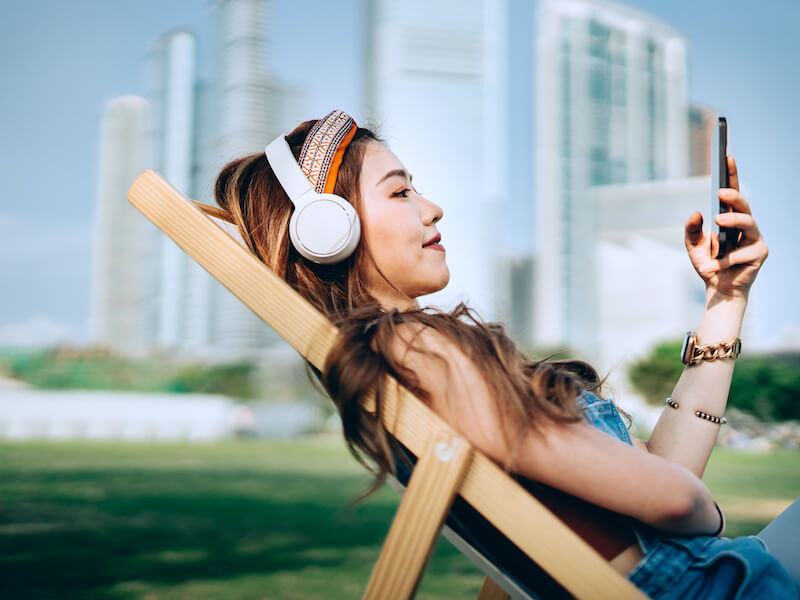
Aiden enjoys music. While he’s out jogging, he listens to Pandora, while working it’s Spotify, and he has a playlist for all his activities: cardio, cooking, video games, you name it. His entire life has a soundtrack and it’s playing on his headphones. But permanent hearing damage may be happening as a consequence of the very loud immersive music he loves.
As far as your ears are concerned, there are healthy ways to listen to music and hazardous ways to listen to music. But the more dangerous listening choice is often the one most of us use.
How does listening to music cause hearing loss?
Your ability to hear can be damaged over time by exposure to loud noise. Typically, we think of aging as the principal cause of hearing loss, but the latest research is revealing that hearing loss isn’t an intrinsic part of getting older but is instead, the result of accumulated noise damage.
It also turns out that younger ears are especially vulnerable to noise-induced damage (they’re still growing, after all). And yet, the long-term harm from high volume is more likely to be dismissed by younger adults. So there’s an epidemic of younger people with hearing loss thanks, in part, to high volume headphone use.
Is there a safe way to enjoy music?
It’s obviously dangerous to listen to music on max volume. But there is a safer way to listen to your tunes, and it usually involves turning the volume down. The general guidelines for safe volumes are:
- For adults: Keep the volume at less than 80dB and for no more than 40 hours per week.
- For teens and young children: 40 hours is still okay but lower the volume to 75dB.
Forty hours per week is roughly five hours and forty minutes per day. Though that might seem like a while, it can feel like it passes quite quickly. But we’re taught to keep track of time our entire lives so most of us are pretty good at it.
Monitoring volume is a little less intuitive. Volume isn’t measured in decibels on the majority of smart devices such as TVs, computers, and smartphones. Each device has its own arbitrary scale. It could be 1-100. But maybe it’s 1-16. You may not have a clue how close to max volume you are or even what max volume on your device is.
How can you listen to tunes while monitoring your volume?
It’s not really easy to tell how loud 80 decibels is, but luckily there are a few non-intrusive ways to know how loud the volume is. It’s even more difficult to determine the difference between 80 and 75dB.
That’s why it’s greatly recommended you use one of numerous free noise monitoring apps. These apps, generally available for both iPhone and Android devices, will provide you with8 real-time readouts on the noises surrounding you. That way you can keep track of the dB level of your music in real-time and make alterations. Or, while listening to music, you can also modify your settings in your smartphone which will automatically tell you that your volume is too high.
As loud as a garbage disposal
Typically, 80 dB is about as loud as your garbage disposal or your dishwasher. So, it’s loud, but it’s not too loud. It’s an important observation because 80dB is about as much noise as your ears can cope with without damage.
So pay close attention and try to stay clear of noise above this volume. If you happen to listen to some music beyond 80dB, don’t forget to limit your exposure. Maybe minimize loud listening to a song instead of an album.
Listening to music at a higher volume can and will cause you to have hearing problems over the long term. Hearing loss and tinnitus can be the outcome. Your decision making will be more educated the more aware you are of when you’re going into the danger zone. And safer listening will ideally be part of those decisions.
Contact us if you still have questions about the safety of your ears.